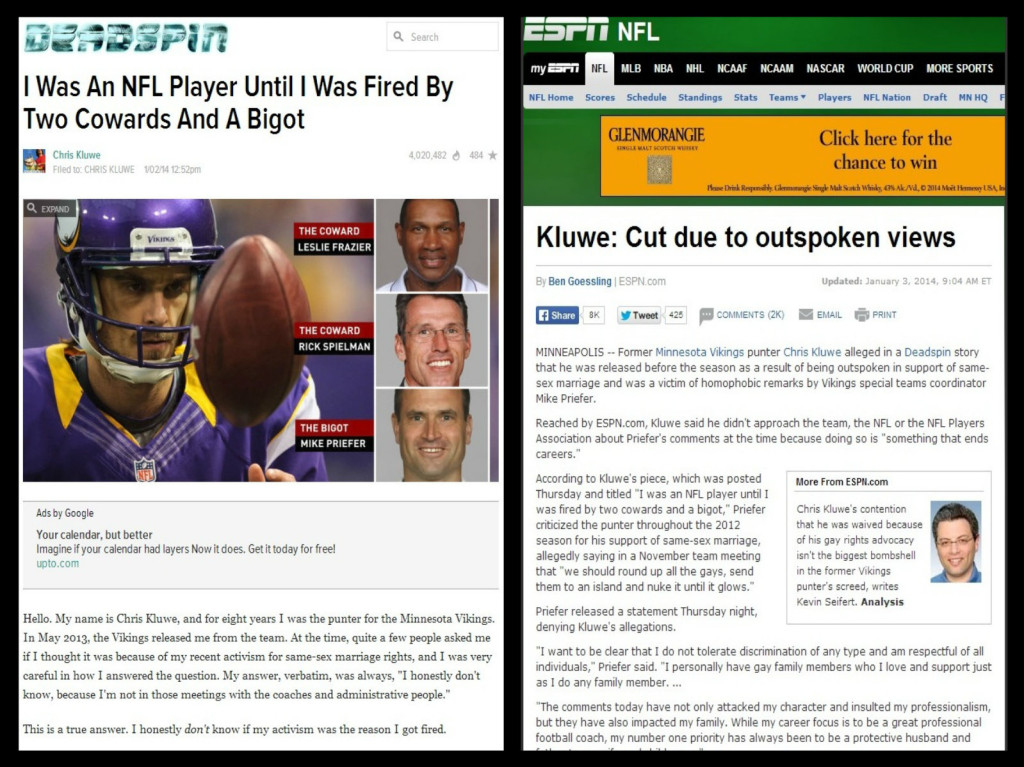For the past 10 years, if you’ve watched TNT television you likely heard the channel’s slogan “We Know Drama“. It’s a tagline in my opinion which was simply brilliant, because it reflected the channel’s programming choices. If you turned on TNT, you’d find either a movie, game or original program, and when you analyzed the content of that particular show, you’d find that it often included some form of drama which helped it fit perfectly into the channel’s strategy.
The slogan was introduced in June 2001, and at that time, former TNT General Manager Steve Koonin said “TNT’s promise is to engage the hearts and minds of our viewers with dramatic programming that offers a powerful combination of compelling stories and interesting characters, mixed with excitement, action, suspense, romance and humor. TNT’s slate of original movies and series, theatrical product, acquired series, championship sports and live event specials will deliver on this consumer proposition.”
Judging from what the channel featured during the past 13 years, they not only lived up to their promise, but viewership increased, and today it remains a strong presence in cable television. Clearly the interest in dramatic content was there, and TNT didn’t try to reinvent the wheel, they simply satisfied the appetite of those who were hungry.
Take a look back at this classic TV commercial created around the 2003 NBA Playoffs. TNT featured Spike Lee to sell the message and the result was a very identifiable spot which was easy for viewers to relate to.
When it comes to sports talk radio, I’ve heard numerous executives over the years refer to the format as the ultimate “soap opera for men“. In some ways, it’s hard for me to fathom that the world of sports could be mentioned in the same sentence with “One Life To Live” and “General Hospital” but when you step back and think about what the world of sports has to offer on a daily basis, it makes perfect sense. The presentation has shifted from x’s and o’s discussions and box score breakdowns to sports-bar conversations centered around personalities and teams. Coincidentally the ratings, platform distribution, and advertising dollars are all experiencing some of the highest performance levels in the format’s history.
 So why is it that people keep seeking out sports media content?
So why is it that people keep seeking out sports media content?
The answer is simple, they love drama!
Case in point, look at these headlines below which were posted within the past week on different media websites. All 5 are written about one of the most popular and polarizing basketball players on the planet, LeBron James.
As you look at these 5 examples, one word should stand out in defining what each story is about – Drama!
- LeBron James, Pat Riley to meet
- LeBron James has a Dwayne Wade problem
- Cavs working to clear max space to land LeBron
- Cavs explain why they took down Dan Gilbert’s letter to LeBron James
- LeBron’s inner circle, including his wife, want him to sign with Cavaliers
Regardless of where you go to get your sports news, you go there because you’re curious, and emotionally engaged in the content. Whether you realize it or not, you’re lured in by the drama of the story. LeBron James right now is the NBA’s real life version of the Truman Show, and we’re all sitting back watching, listening, reading, and reacting to every piece of news, and deciding what’s best for him, his family, his future, and each team that wants him. It’s a classic case of media outlets feeding us drama, and each of us devouring it, and asking for seconds.
 When you finish your show today, I want you to step back and reflect on what you presented to the audience. Look at each of your segments and what the conversation was built around. In most cases I bet you presented a question based off of a certain subject, and with that question you provided your opinion/answer to it. That my friends is called selling the drama!
When you finish your show today, I want you to step back and reflect on what you presented to the audience. Look at each of your segments and what the conversation was built around. In most cases I bet you presented a question based off of a certain subject, and with that question you provided your opinion/answer to it. That my friends is called selling the drama!
If you weren’t doing that then I’d ask you to reassess your content, and figure out what you want your audience to sink their teeth into. If you have no hook and no drama in your presentation, than chances are you’re filling air time with no true purpose. By doing that you’re asking your listeners to standby while you figure it out, and they don’t have time for it. Your audience wants to show up and have you distract them from the everyday pressures they face by providing them with compelling and entertaining content. If you can’t do that, they’ll find someone who can.
Remember this, your audience isn’t turning to you because they want to know who won last night’s game, what Player X’s batting average is or how many of the next 10 games their favorite team plays at home vs. on the road. They can get that stuff by clicking on any sports website. They’re also not coming to you to hear how many phone calls you can take during the course of a 3-4 hour show. The only person keeping count of your caller totals is you and your producer.
They will though listen to a passionate discussion between a host and a caller provided there’s a question or angle being discussed, and they do appreciate information as long as it’s used to advance the angle you’re presenting. In a nutshell, information and filling content time doesn’t earn you an emotional investment from your audience – your ability to deliver a compelling discussion and unique opinion on the story that matters to your audience does.
 Whether we like it or not, people today care more about Johnny Manziel’s off the field behavior than any of his studying habits or practice throws. They know Carmelo Anthony’s free agent suitors better than the NY Knicks roster that he played on last season. They focus more on who got snubbed from the All-Star game, and how playing in the game could impact a player’s second half performance, more than they focus on the actual game itself. Every listener fancies themselves as a GM with solid knowledge of what each player makes, what each team spends, the length of each player’s contract, and how it will help/hurt their favorite team in the future.
Whether we like it or not, people today care more about Johnny Manziel’s off the field behavior than any of his studying habits or practice throws. They know Carmelo Anthony’s free agent suitors better than the NY Knicks roster that he played on last season. They focus more on who got snubbed from the All-Star game, and how playing in the game could impact a player’s second half performance, more than they focus on the actual game itself. Every listener fancies themselves as a GM with solid knowledge of what each player makes, what each team spends, the length of each player’s contract, and how it will help/hurt their favorite team in the future.
Why do all of these items above matter to people? Because they’re dramatic, and they create thoughts and emotions inside of every one of us. These are feelings that can’t be turned off or brushed aside. Whether it’s joy, frustration, love, hate, passion, confusion or something else, the more people hear about it, the more interested they become, and the more they seek resolution and additional facts to our conversations, the more we invade their minds and cause them to think and feel. The more we do that, the better our chances of keeping them listening.
 For an on-air talent, you are constantly selling drama to your audience because it’s the one ingredient that makes your show special each day. Nowhere on the planet can your show be duplicated. While the same stories may be discussed everywhere else, your personality, perspective, creative elements and delivery of the information keeps you unique.
For an on-air talent, you are constantly selling drama to your audience because it’s the one ingredient that makes your show special each day. Nowhere on the planet can your show be duplicated. While the same stories may be discussed everywhere else, your personality, perspective, creative elements and delivery of the information keeps you unique.
However, your audience has distractions being thrown their way every day, so the only way to cut through the clutter and permanently rent space in their head is by using drama to your advantage. They want to take the roller coaster ride with you, and experience your ups, downs and in-between’s. It’s your job to keep them hanging on every word and sentence.
A colleague of mine (Jeff Schmidt) sent this to me months ago and it instantly connected with me. Take a look at these two stories below and look at the headlines. The story on the left is presented by Deadspin.com and the story on the right is presented by ESPN.com. When you look at the headline of each story, which one contains more passion and suspense?
In my opinion, Deadspin used words to stir an emotion with the reader while ESPN focused on the facts and delivered a neutral headline. While the approach for both brands may be different, they both make sense. However if this were a sports radio segment, you’d hook a lot more people with the drama of the Deadspin headline than you would with the ESPN presentation.
Think for a second of how this relates to you. Your listener is either in a car or listening on a computer or mobile device and on each of these platforms have multiple choices. In most people’s phones there are 25-50 apps readily available to take them elsewhere, or if they’re in a car they have the option of FM/AM radio, a CD player, possibly satellite radio, or some other electronic device that they can connect to their dashboard and listen to. In either case, you’re already battling for an individual’s attention before you even get started.
If you’re lucky, you’re one of the first places the listener turns to because your brand/station has built trust and loyalty with them, or they’ve formed a connection with you or another on-air personality. From there, it comes down to picking the right content and manufacturing the drama in the most unique and entertaining way to keep them engaged.
 Pick the wrong content, and they’re gone. Pick the right content, and present it in a safe and predictable way, and they’re gone. Select the right content, and construct enough angles and unique viewpoints to keep the listener wanting to take an emotional journey with you, and you’ve got a fighting chance.
Pick the wrong content, and they’re gone. Pick the right content, and present it in a safe and predictable way, and they’re gone. Select the right content, and construct enough angles and unique viewpoints to keep the listener wanting to take an emotional journey with you, and you’ve got a fighting chance.
Try it out when LeBron James finally signs with a team. I guarantee you’ll hear every station discuss the story, but the place where you’ll spend the majority of your time listening to it, will be with the outlet and personality that advances the story, and best captures and sells the drama and suspense and drama.
There is no better example of capturing drama than when you go to the movies, and spend 15-20 minutes waiting for your featured movie to start. Once those previews hit you know you’re immediately sucked in. For example, watch this trailer of the upcoming film “When The Game Stands Tall“. By the time the trailer is done playing you’ll know the focus of the story, the drama that occurs, and the question being asked that must be answered. The result, you’ve given Sony Pictures 2:44 of your time, and soon enough you’ll be spending your money to go watch it because the story drew you in.
Whether it’s a movie, a sporting event, an argument between co-workers or a sports talk radio show, people have a passion for drama. They seek it out and remain consumed by it, and that’s not going to change anytime soon. Don’t believe me? Check your Facebook feed or Twitter timeline. It’s happening every second of every hour.
Sometimes a slogan doesn’t make any sense for a brand, but in the case of TNT they created something which fit like a glove, and they delivered on that promise to perfection. That’s an example of effective research, smart strategy, and consistent execution. When you do those things right, you win consistently and grow continuously.
 To wrap this up, I’ll leave you with one shred of evidence that’ll make you re-think whether or not you can afford for drama to not be a central part of your content focus each day. Currently when you look at the best performing sports radio stations across the country, the average amount of time spent listening is usually between 3-4 hours per week M-F 6A-7P. These stations also deliver somewhere between 5-10% of listening among Men 25-54, and that by industry standards is considered a pretty strong success.
To wrap this up, I’ll leave you with one shred of evidence that’ll make you re-think whether or not you can afford for drama to not be a central part of your content focus each day. Currently when you look at the best performing sports radio stations across the country, the average amount of time spent listening is usually between 3-4 hours per week M-F 6A-7P. These stations also deliver somewhere between 5-10% of listening among Men 25-54, and that by industry standards is considered a pretty strong success.
One though could look at it the other way, and argue that your core programming which you pay top dollar for and promote heavily, is consumed for only 36-48 minutes per day out of a 780 minute window, and in your market, 90-95% of Men 25-54 don’t listen to you.
Now how’s that for drama!
Yes we can talk about the issues with PPM, we can blame things beyond our control such as signal issues, play by play events, lack of marketing, etc. but in every one of those scenarios, we’re emotionally invested in the subject and we’re ready to defend, explain and engage in the conversation. That my friends is what drama does.
TNT figured out how to capture the mind and eyes of the viewer,nand there’s no reason why sports radio can’t do the same, and capture the mind and ears of its audience. If ever there was a business built to understand and sell drama, it’s sports talk radio. If it can be done right, who knows, maybe one day we’ll present a brand new slogan – “We Own Drama“.

Jason Barrett is the Founder and CEO of Barrett Media. The company launched in September 2015 and has provided consulting services to America’s top audio and video brands, while simultaneously covering the media industry at BarrettMedia.com, becoming a daily destination for media professionals. Prior to Barrett Media, Jason built and programmed 95.7 The Game in San Francisco, and 101 ESPN in St. Louis. He was also the first sports programmer for SportsTalk 950 in Philadelphia, which later became 97.5 The Fanatic. Barrett also led 590 The Fan KFNS in St. Louis, and ESPN 1340/1390 in Poughkeepsie, NY, and worked on-air and behind the scenes at 101.5 WPDH, WTBQ 1110AM, and WPYX 106.5. He also spent two years at ESPN Radio in Bristol, CT producing ‘The Dan Patrick Show’ and ‘GameNight’. JB can be reached on Twitter @SportsRadioPD or by email at Jason@BarrettMedia.com.






